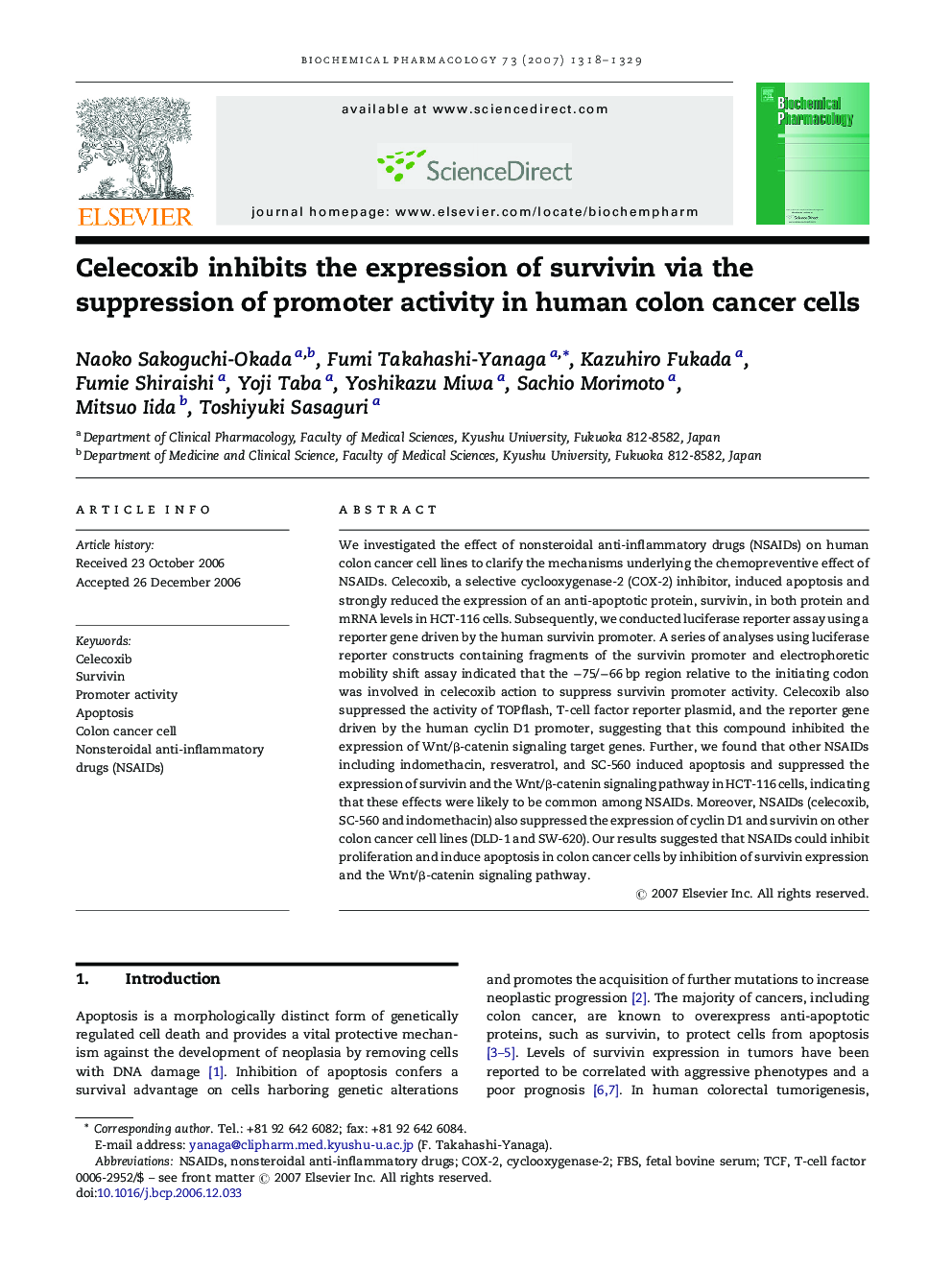| Article ID | Journal | Published Year | Pages | File Type |
|---|---|---|---|---|
| 2515709 | Biochemical Pharmacology | 2007 | 12 Pages |
We investigated the effect of nonsteroidal anti-inflammatory drugs (NSAIDs) on human colon cancer cell lines to clarify the mechanisms underlying the chemopreventive effect of NSAIDs. Celecoxib, a selective cyclooxygenase-2 (COX-2) inhibitor, induced apoptosis and strongly reduced the expression of an anti-apoptotic protein, survivin, in both protein and mRNA levels in HCT-116 cells. Subsequently, we conducted luciferase reporter assay using a reporter gene driven by the human survivin promoter. A series of analyses using luciferase reporter constructs containing fragments of the survivin promoter and electrophoretic mobility shift assay indicated that the −75/−66 bp region relative to the initiating codon was involved in celecoxib action to suppress survivin promoter activity. Celecoxib also suppressed the activity of TOPflash, T-cell factor reporter plasmid, and the reporter gene driven by the human cyclin D1 promoter, suggesting that this compound inhibited the expression of Wnt/β-catenin signaling target genes. Further, we found that other NSAIDs including indomethacin, resveratrol, and SC-560 induced apoptosis and suppressed the expression of survivin and the Wnt/β-catenin signaling pathway in HCT-116 cells, indicating that these effects were likely to be common among NSAIDs. Moreover, NSAIDs (celecoxib, SC-560 and indomethacin) also suppressed the expression of cyclin D1 and survivin on other colon cancer cell lines (DLD-1 and SW-620). Our results suggested that NSAIDs could inhibit proliferation and induce apoptosis in colon cancer cells by inhibition of survivin expression and the Wnt/β-catenin signaling pathway.
